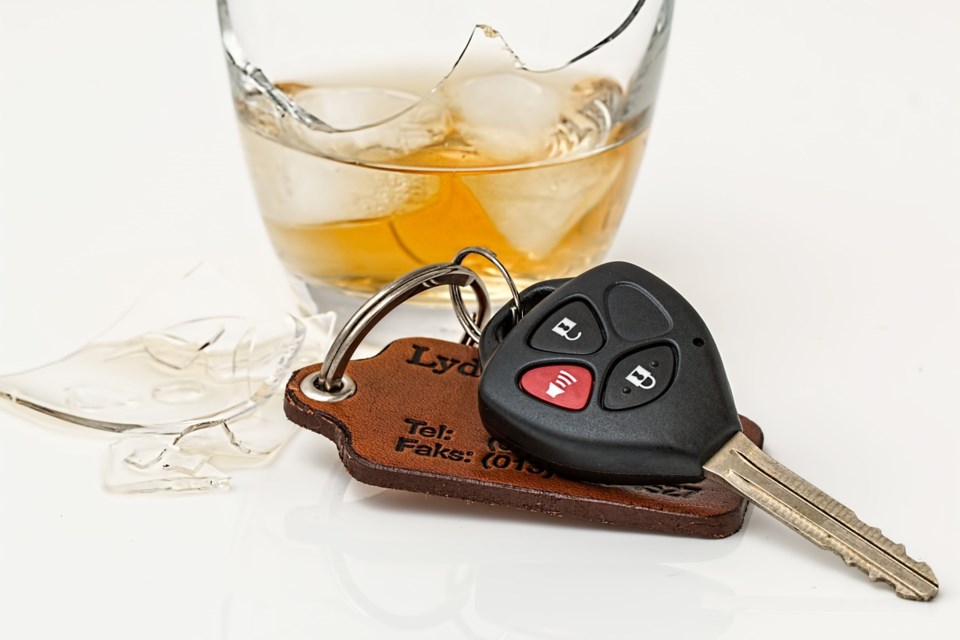The year 2019 saw a record low year for the number of people killed and injured in impaired driving collisions in Saskatchewan.
According to estimated numbers, fatalities are down over 50 per cent from 2018 and it was down almost 70 per cent from 2012 which had the highest number of fatalities in the last decade. 2009 saw impaired driver injuries hitting a high of 889 where as 2019 saw 332 injuries. Although this is good news, the province feels the work is not done.
“Fewer deaths from impaired driving is positive news, of course, but the only acceptable number of impaired driving deaths is zero,” said Penny McCune, chief operating officer of the Auto Fund.
“Every single person who dies as a result of impaired driving has someone they leave behind and a story that wasn’t finished. If their story wasn’t done, then our job isn’t done either.”
Between January and June of this year, there have been 1,988 impaired driving offences reported through the Traffic Safety Spotlights. These include 1,691 Criminal Code charges. Of course, not all charges result in convictions, and TSS results don’t necessarily include every charge laid by police.
“Over the last decade, we have seen numbers going in the right direction when it comes to impaired driving. Of course we want to see that improvement accelerated,” say McMurchy.
2019 not only saw the lowest number of impaired driving fatalities in Saskatchewan’s history, but also record breaking low numbers in overall traffic safety fatalities. These numbers are a result of many factors.
“Some of the factors that are taken into account is the increased awareness on the issue of impaired driving in Saskatchewan.
“It is not just the work of SGI either. There has been a lot important work done by a lot of different parties including law enforcement and groups like MADD and SADD. One of the things that we really want to highlight is the work done by people who were personally affected by impaired driving. The families of victims that lost their lives,” McMurchy said.
Some other factors include enforcement and legislation too according to McMurchy.
“When you combine the enforcement along with legislation and the increased awareness of the issue, those factors all combine to help people make better decisions [behind the wheel],” McMurchy said.
Although fewer people are choosing to drive impaired, law enforcement has not chosen to relax on the issue.
“Our roads are getting safer. The number of charges and convictions when it comes to impaired driving has come down but not to a large degree. This mean that the few people who still choose to do it [drive while impaired], are more likely to get caught, but if you are seeing fewer collisions, injuries and fatalities related to impaired driving, that means overall our roads are getting safer. We have seen a real attitude change when it comes to impaired driving in Saskatchewan,” McMurchy said.
This is a leap in the right direction especially considering that last year Stats Canada reported that in 2017 Saskatchewan had the highest impaired driving rate in rural areas (939 incidents per 100,000 population); it was followed by Alberta (597 incidents per 100,000 population) and Manitoba (588 incidents per 100,000 population). In comparison, the lowest rate was posted in Ontario (187 incidents per 100,000 population), followed by Newfoundland and Labrador (192 incidents per 100,000 population).
“We know that the problem isn’t solved. Police are still catching 300 to 400 impaired drivers every month is Saskatchewan so there still are people doing it and we want them to get on the right side and making that decision not to drive impaired,” McMurchy said.
McMurchy also said number of impaired drivers is disproportionately high on provincial highways and rural roads and First Nations roads, so this is an area that will be looked into by SGI and its supporting groups.
To make sure drivers are safe SGI has a few suggestions:
- Always choose to #DriveSober, and never get in a vehicle with someone you believe is impaired by alcohol or drugs.
- Be a good “wingman.” Don’t let friends or family get behind the wheel impaired. Choose to be the designated driver.
- Plan a safe ride home before you start drinking and your judgment is impaired.
- Know the laws. Drinking alcohol or using drugs and then driving are both forms of impaired driving.
- Report impaired drivers and suspected impaired drivers by 9-1-1 through the RID program.
- Become aware of the impacts impaired driving has on not only the victims, but their families.
“Impaired drivers face vehicle seizures, licence suspensions, steep financial penalties, along with possible jail time and a criminal record if convicted of driving impaired.
“More important than the penalties that come with getting caught are the human consequences: someone getting injured or killed as a result of an impaired driver’s actions,” McMurchy said.




